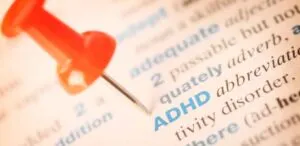What is Obsessive-Compulsive Disorder (OCD)?
OCD is a psychological disorder in which people experience recurring, unwanted thoughts, ideas, or feelings (obsessions). They feel compelled to perform something repeatedly to get rid of the thoughts (compulsions). Repetitive behaviors like hand washing, cleaning and checking on objects, and other psychological acts and activities can substantially interfere with a person’s daily activities and social interactions. A persistent mark the Obsessive-compulsive disorder, a chronic anxiety state.
Many individuals who do not have OCD also experience upsetting thoughts or repetitive activities. However, OCD patients have inflexible actions and intrusive, recurring thoughts. When the behaviors are not carried out, they frequently generate a tremendous deal of distress, which is frequently accompanied by a particular fear of terrible consequences.
Many OCD sufferers are caught in a cycle of recurrent obsessions and compulsions; here, we’ll quickly touch on both.
OCD Obsessions:
People who have OCD experience distressing and repeated cravings that are beyond their control. Obsessions are persistent thoughts, impulses, or images that bring on unpleasant feelings like fear, revulsion, or worry. Many OCD patients are aware of psychotherapy that these thoughts and behaviors are excessive or irrational and are the result of their minds. However, logic or reasoning is unable to alleviate the discomfort brought on by these intrusive thoughts.

Examples of typical obsessional thinking topics:
- Fear of misplacing or ignoring something crucial
- The Fear of germs or dirt.
- Fear of engaging in violence or experiencing damage (to self or loved ones)
- Extreme anxiety about symmetry, accuracy, or order
- Fear of environmental or human contamination
- Heightened worry that something is incomplete
OCD Compulsions:
People with OCD use certain behaviors, habits, or routines to manage their obsessions and anxieties. They keep doing it repeatedly. They don’t like and don’t want to engage in these obsessive activities. However, they feel that their anxiety will get worse if they don’t follow along. But compulsions are just a temporary solution. The compulsions quickly reoccur in response to the obsessions. This loop causes this cycle of worry.
Compulsions involve excessive responses in ways that are directly connected to an obsession or wholly unrelated behaviors. In the worst cases, a day could be filled with repeated routines, making it hard to go about your daily routine.
Examples of compulsions:
- Placing or arranging objects in a specific order
- Repeated cleaning of household items
- Checking doors, switches, stove, locks, etc repeatedly
- Excessive hand washing, bathing, or using the restroom
- Avoiding specific individuals, places, or circumstances that make their obsessions and/or compulsions worse
- Collecting goods that are worthless (in terms of intrinsic value)
- Refusing to shake hands or touch items
People with OCD may also have tics which include quick, abrupt, and repeated motions or behaviors like:
- Blinking their eyes
- Jerking their head
- Sniffling their nose or clearing their throat

How is obsessive-compulsive disorder (OCD) diagnosed?
The terms “obsessing,” “obsessed,” and “OCD” are frequently used in informal discussions. But the following elements are used to diagnose OCD:
- The person suffers from compulsions, obsessions, or both
- The compulsions or obsessions consume a great deal of time per day
- The obsessions or compulsions interfere with a person’s normal life
- Drugs, alcohol, prescription medicines, or any other medical condition do not produce the same symptoms
- There is no other psychological disorder that can explain the symptom
What treatments are available for obsessive-compulsive disorder (OCD)?
Patients with OCD who get effective therapy frequently report an improvement in functioning and quality of life. Through treatment, the ability of individuals increased to perform at work and school, enjoy relationships, and engage in leisure activities.
Cognitive Behavioral Therapy:
During CBT therapy sessions, patients are exposed to feared scenarios or images that are related to their obsessions. Patients are advised to avoid performing their typical obsessive habit (known as response prevention). By staying in a feared situation without anything bad happening, patients learn that their afraid ideas are merely thoughts.
Medication:
A type of medication known as selective serotonin reuptake inhibitors (SSRIs) or tricyclic antidepressants are typically used to treat depression and can also be beneficial in treating OCD. They increase levels of serotonin.
Exposure and response prevention (EX/RP):
With this therapy, patient engage in an anxiety-provoking activity. The medical professional then stops you from responding with a compulsion. For instance, the service provider can invite you to touch something dirty and then stop you from washing your hands afterward, helping you break the cycle of obsessive behaviors.
Electroconvulsive therapy (ECT):
Electroconvulsive therapy (ECT) involves placing electrodes on your head to deliver controlled electrical shocks to the brain. These shocks induce small seizures, which help in releasing brain chemicals that can alleviate symptoms of OCD.
Transcranial magnetic stimulation (TMS):
Transcranial magnetic stimulation (TMS) uses a magnetic device placed on the head to send electrical signals to the brain. These impulses stimulate the release of chemicals known to improve mood, offering another effective treatment option for OCD.
Novus Beginning Psychiatry: Your Path to Health and Wellness Starts Here!
We understand that navigating the complexities of mental health can feel overwhelming, but you don’t have to face it alone. At Novus Beginning Psychiatry, we’re here to support you every step of the way. Whether you’re seeking therapy, medication, or a combination of both, our compassionate professionals are dedicated to helping you find the path to a happier, healthier life.
Our highly skilled psychiatrists are experienced in a wide range of mental health conditions, including anxiety, depression, bipolar disorder, OCD, PTSD, ADHD, autism, and more. We offer evidence-based therapies that have been proven effective in helping individuals overcome their challenges. From cognitive-behavioral therapy (CBT) to couples/family therapy, we utilize the most up-to-date techniques to empower you on your healing journey.
We also recognize that medication is vital in managing certain psychological health conditions. Our team includes Dr. Nibras, who is a board-certified psychiatrist well-versed in medication management. He works closely with you to develop a comprehensive treatment plan, as we believe in the power of personalized care.
So, take the first step towards a brighter future. Contact us today to schedule an appointment. Our friendly staff is ready to assist you in finding a convenient time to meet with our dedicated professionals. Call (832)856-4718 and let us help you take charge of your mental well-being.
Medication Management For Psychiatric Wellness
At Novus Beginning Psychiatry, we’re dedicated to helping you unlock the power of effective medication management. Our team of psychiatrists has years of experience and understands the importance of finding the right balance for your mental health journey. We offer personalized and compassionate care, creating medication plans that are tailored to your unique needs. Our understanding of psychopharmacology allows us to provide the most advanced and evidence-based treatments available.
Our goal is to help you by providing the right medications to enhance your therapy outcomes, reduce your symptoms, and improve your overall well-being. We want to be your trusted partner on the path to a brighter future. Please don’t hesitate to contact us at Novus Beginning Psychiatry to experience the transformative effects of our comprehensive medication management approach.
Come and visit us at one of our locations in person or meet us via telepsychiatry/online!
We’re here to help in Texas, ready to meet you in person. If you’re unable to make it in person, don’t worry, we’re also available online, so you can meet us easily from the comfort of your own home. Whether you prefer to see us face-to-face or connect with us online, we’re here to assist you every step of the way.
Address in Sugar Land
120 Eldridge Rd Suite D, Sugar Land, TX 77478
Address in Katy
23410 Grand Reserve Drive, Ste. 401 & 402 Katy, Texas 77494



